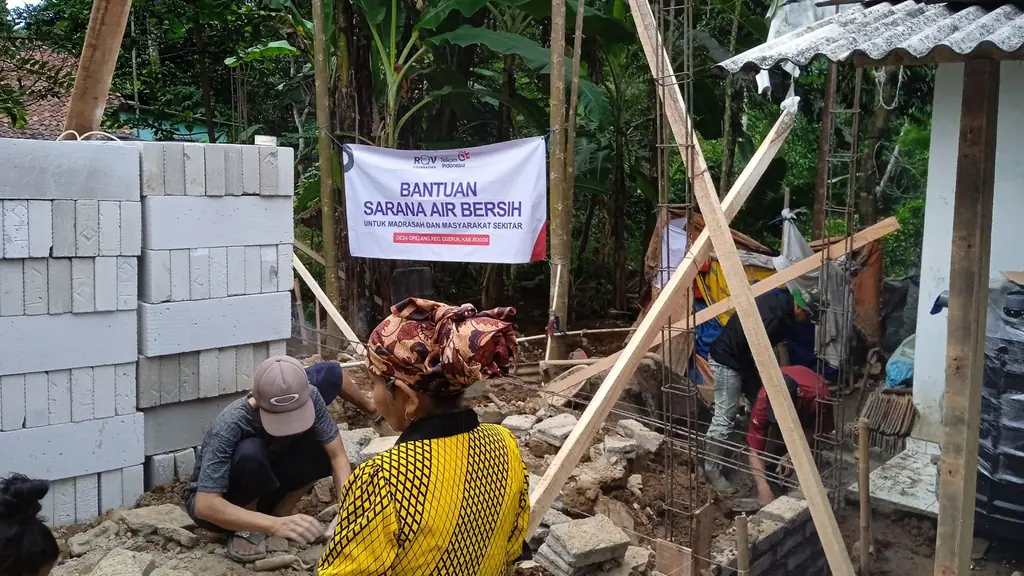
While Indonesia is witnessing rapid growth in its digital and technological sectors, basic infrastructure challenges such as access to clean water remain unresolved in many communities. According to Statistics Indonesia (BPS) data from 2023, approximately 12.6% of Indonesian households still lack access to adequate clean water services. The problem is particularly acute in the nation’s remote, underdeveloped, and outermost regions (collectively known as the "3T" areas), as well as in densely populated urban neighborhoods.
To tackle this issue, PT Telkom Indonesia (Persero) Tbk (Telkom) launched a Clean Water Facilities Program, realized throughout 2025 as part of the company’s ESG-driven community investment. Under the program, 51 clean water access points were developed across five strategic locations: Bandung, Banten, Gowa, Sukabumi, and the Mentawai Islands.
Each facility includes water storage tanks, distribution pipelines, and low-tech filtration systems that are designed to be easily operated and maintained by local residents. The goal is to provide communities with safe, sustainable, and affordable access to clean water, a critical resource for health, dignity, and development.
“Clean water is more than just infrastructure—it is the foundation of a healthy and productive life,” said Hery Susanto, Senior General Manager of Social Responsibility at Telkom Indonesia. “This program is our contribution to UN Sustainable Development Goal (SDG) 6: Clean Water and Sanitation, and a practical implementation of our company’s Environmental, Social, and Governance (ESG) commitments.”
The impact of the initiative is already evident on the ground. One recipient, Nita, a resident of Borisallo Village in South Sulawesi, shared how the facility has transformed daily life in her community.
“Previously, we had to walk long distances or queue for hours just to collect clean water—especially during dry seasons. Now, water is available right in our village. It’s made a big difference in our daily routines,” she explained.
In addition to providing access to water, the program also serves as a platform for hygiene education and promotes community-led stewardship of public resources. Moreover, it generates local employment opportunities during the construction and maintenance phases, contributing to broader social and economic resilience.
Telkom Indonesia's Clean Water Facilities Program showcases how private-sector innovation and investment can drive meaningful, scalable, and sustainable development outcomes—particularly in regions where government infrastructure may be limited.
By focusing on locally relevant solutions, inclusive governance, and environmental responsibility, the company reinforces its role as a responsible corporate citizen and a key contributor to Indonesia’s national development agenda and global ESG goals.
This initiative is a reminder that while digital innovation may shape the future, basic needs like clean water remain central to human progress.